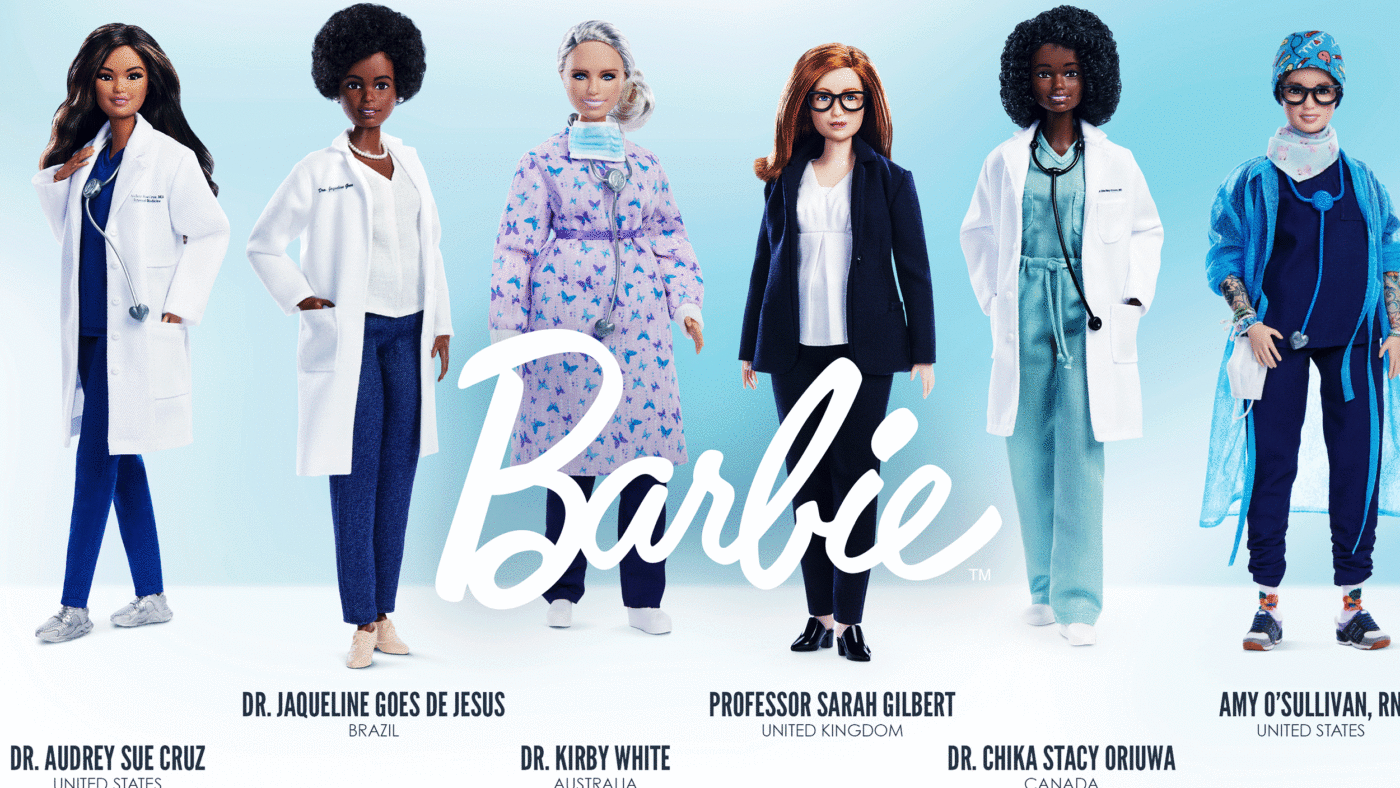Barbie, long lambasted for perpetuating unrealistic beauty standards and perpetuating female oppression, has gone brainy. Mattel has created a doll of the scientist who created the Oxford Covid vaccine, Prof Sarah Gilbert, as part of a range celebrating women working in science, technology, engineering and mathematics (STEM). Like many things supposedly made for children, this project is in fact aimed at anxious, insecure parents. It may be harmless (if self-serving) fun, but it’s far from a victory for feminism – in fact it’s just part of another exercise in brainwashing young girls. Instead of conforming to a certain unattainable body-type, society’s new way of making young women feel inferior is insisting they pursue a career in STEM.
So unrelenting is the obsession with women in STEM these days that you could be forgiven for thinking that if it weren’t for a lack of female engineers, sexism would cease to exist. If you have children, you will be well versed in the apparently limitless opportunities that it promises your daughter. Science, it would seem, has been our ticket to equality and route out of systemic patriarchy all along. Instead of burning our bras, we should have been wearing lab coats.
Like anyone, I can see how important it is to show women that they can work in any field. I also understand that men have dominated this particular area of study. Recent UCAS data, only 35% of STEM students in higher education in the UK are women. But women have outnumbered their male counterparts when it comes to acquiring English bachelors and masters degrees since the 1960s. At the same time boys are consistently attaining poorer reading and writing scores throughout education compared to girls.
So why the fixation on repairing the imbalance in STEM? Two reasons – the first is that technical, practical subjects are now viewed as far superior to all other disciplines. You might say that Silicon Valley lives rent free in the minds of government ministers. The vision of a post Brexit Britain relies upon a nation of entrepreneurs and computer literate whiz-kids. Earlier in the year, Gavin Williamson, Secretary of State for Education, said: “Many [students] are already starting to pivot away from dead-end courses that leave young people with nothing but debt.” This comment came along with a 50% funding cut to a number of arts courses within higher education. Seduced by the promise of future economic advantage, the Government has clearly decided that the arts – a historically female dominated sector – are expendable. After all, if women aren’t taken seriously in general why should the subjects they choose to study be?
The second reason, if you’ll forgive the pun, stems from old-fashioned misogyny, and it’s that society still only respects women when they act like men and adhere to seemingly masculine virtues. Of course, technological subjects shouldn’t be and aren’t reserved for men. But with the fetishisation of certain fields of study that just happen to be predominantly male dominated, it’s almost as if we are begging for approval. These days, problem solving, strategic thinking and analytical skills are often placed in much higher esteem than creativity, imagination and expressiveness. Boys are not being told to adapt their behaviour and interests but girls are being coerced into believing that a safe, logical career within STEM is the sole indication of their strength and ability. We have become preoccupied by the vision of a woman in a hard hat.
Some will argue that this is a sincere attempt to break rigid stereotypes, but I see a sustained effort to make women feel guilty, weak or intellectually inferior if they don’t conform to the new exceptional norm. All we have done is shifted the goalpost.
The obsession with STEM at the expense of other subjects isn’t just socially damaging, it’s statistically misguided too. As Laura McInerney, co-founder of Teacher Tapp says, “The promises of great science jobs are not necessarily fulfilled, by the way. Computer science courses persistently have the highest unemployment rates. Meanwhile, English graduates still go into a wide variety of careers, from publishing to the civil service. And soft skills are always in demand. Google cites communication skills and creativity among its top prerequisites for employees.”
We have to accept, sooner or later, that some girls – however hard we try – will not choose a career in science, and it won’t be because of a lack of representation. Pouring funds into one sector whilst stripping it from another is no way to smash the glass ceiling. Forcing the issue, and making women feel that stereotypically ‘feminine’ choices are inferior is a way of shaming women and dismissing our educational accomplishments. Barbie may have a new outfit and a fetching pair of specs, but she’s still thrusting an agenda on girls who just want to play.
Click here to subscribe to our daily briefing – the best pieces from CapX and across the web.
CapX depends on the generosity of its readers. If you value what we do, please consider making a donation.


